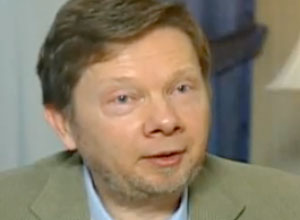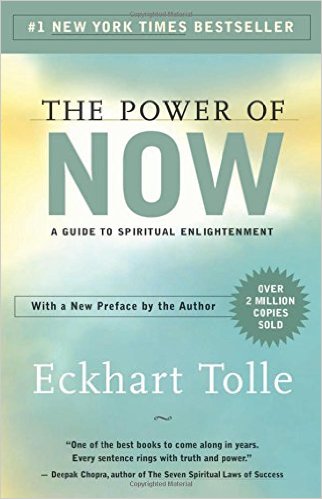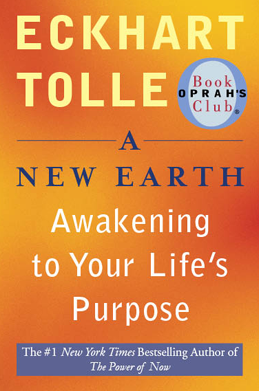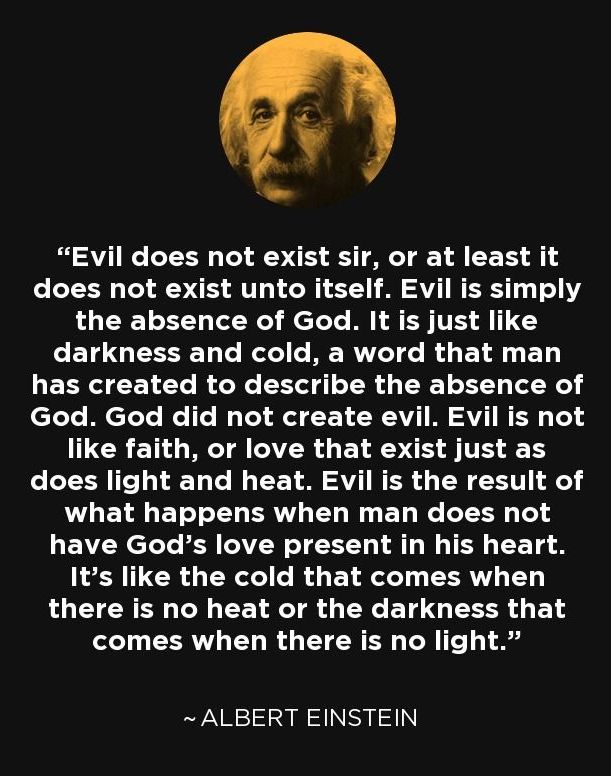|
home | what's new | other sites | contact | about |
||||||||
|
Word Gems exploring self-realization, sacred personhood, and full humanity
Worry
Winston S. Churchill: “When I look back on all these worries, I remember the story of the old man who said on his deathbed that he had had a lot of trouble in his life, most of which had never happened”
Editor's 1-Minute Essay: Worry Editor's 1-Minute Essay: Surrender & Acceptance
August Goforth: “When I mentally, emotionally move away from Source, I will feel some kind of less-than-good sensation. I cannot actually move away from Source in reality — because Reality Is All There Is — but I can think as if I can… [the] ego-mind’s declaration that Source has abandoned me and therefore I am ‘all alone’ or ‘lost’. I have somehow temporarily forgotten that no matter where I think or feel I am, Source always is here.” Olin Miller: “You probably wouldn’t worry about what people think of you if you could know how seldom they do.” Marcus Aurelius: “Never let the future disturb you. You will meet it, if you have to, with the same weapons of reason which today arm you against the present.” Corrie ten Boom: “Worrying is carrying tomorrow's load with today's strength- carrying two days at once. It is moving into tomorrow ahead of time.” Deepak Chopra, Synchrodestiny: Harnessing the Infinite Power of Coincidence to Create Miracles: “According to Vedanta, there are only two symptoms of enlightenment, just two indications that a transformation is taking place within you toward a higher consciousness. The first symptom is that you stop worrying. Things don't bother you anymore. You become light-hearted and full of joy. The second symptom is that you encounter more and more meaningful coincidences in your life, more and more synchronicities. And this accelerates to the point where you actually experience the miraculous. (quoted by Carol Lynn Pearson in Consider the Butterfly)” Harper Lee, To Kill a Mockingbird: “It's not time to worry yet.” Ralph Waldo Emerson: “Sorrow looks back, Worry looks around, Faith looks up” Shantideva: “If the problem can be solved, why worry? If the problem cannot be solved, worrying will do you no good.” Mandy Hale: “It’s OKAY to be scared. Being scared means you’re about to do something really, really brave.” Ana Monnar: “Whatever is going to happen will happen, whether we worry or not.”
Benjamin Franklin: “Do not anticipate trouble, or worry about what may never happen. Keep in the sunlight.” Dalai Lama XIV: “If you have fear of some pain or suffering, you should examine whether there is anything you can do about it. If you can, there is no need to worry about it; if you cannot do anything, then there is also no need to worry.” Max Lucado: “How can a person deal with anxiety? You might try what one fellow did. He worried so much that he decided to hire someone to do his worrying for him. He found a man who agreed to be his hired worrier for a salary of $200,000 per year. After the man accepted the job, his first question to his boss was, Where are you going to get $200,000 per year? To which the man responded, That's your worry.” Jodi Picoult: “If you spent your life concentrating on what everyone else thought of you, would you forget who you really were?” Maxwell Maltz: “Times will change for the better when you change.” Jesus of Nazareth, Matthew 6:25-34: “Do not worry about your life, what you will eat or drink; or about your body, what you will wear. Is not life more important than food, and the body more important than clothes? Look at the birds of the air; they do not sow or reap or store away in barns, and yet your heavenly Father feeds them. Are you not much more valuable than they? Who of you by worrying can add a single hour to his life? And why do you worry about clothes? See how the lilies of the field grow. They do not labour or spin. Yet I tell you that not even Solomon in all his splendor was dressed like one of these. If that is how God clothes the grass of the field, which is here today and tomorrow is thrown into the fire, will he not much more clothe you, O you of little faith? So do not worry, saying, What shall we eat? or What shall we drink? or What shall we wear? For the pagans run after all these things, and your heavenly Father knows that you need them. But seek first his kingdom and his righteousness, and all these things will be given to you as well. Therefore do not worry about tomorrow, for tomorrow will worry about itself. Each day has enough trouble of its own.” Mark Twain: “I am an old man and have known a great many troubles, but most of them have never happened.” Gordon B. Hinckley: “If we are worried about the future, then we must look today at the upbringing of children.” Dan Zadra: “Worry is a misuse of the imagination.” John Ortberg: “Never worry alone. When anxiety grabs my mind, it is self-perpetuating. Worrisome thoughts reproduce faster than rabbits, so one of the most powerful ways to stop the spiral of worry is simply to disclose my worry to a friend... The simple act of reassurance from another human being [becomes] a tool of the Spirit to cast out fear -- because peace and fear are both contagious.”
Leo F. Buscaglia: “Worry never robs tomorrow of its sorrow, it only saps today of its joy.” Bediüzzaman Said Nursî: “Worry is itself an illness, since worry is an accusation against Divine Wisdom, a criticism of Divine Mercy.” Mark Twain: “Drag your thoughts away from your troubles... by the ears, by the heels, or any other way you can manage it.” Michel de Montaigne: “There were many terrible things in my life and most of them never happened.” George Orwell, Down and Out in Paris and London: “Within certain limits, it is actually true that the less money you have, the less you worry.” June Hunt : “Worry is most often a prideful way of thinking that you have more control over life and its circumstances than you actually do.” Shannon L. Alder: “Sensitive people either love deeply or they regret deeply. There really is no middle ground because they live in passionate extremes.” Sun Tzu, The Art of War “There are five dangerous faults which may affect a general: (1) Recklessness, which leads to destruction; (2) cowardice, which leads to capture; (3) a hasty temper, which can be provoked by insults; (4) a delicacy of honor which is sensitive to shame; (5) over-solicitude for his men, which exposes him to worry and trouble.” Martin Luther: “Pray, and let God worry.” Winston S. Churchill: “When I look back on all these worries, I remember the story of the old man who said on his deathbed that he had had a lot of trouble in his life, most of which had never happened” Cassandra Clare: “Sometimes grief and worry must take the form of action,” said Cordelia. “Sometimes it is unbearable to sit and wait.” Elizabeth Wein: “Oh Julie, wouldn’t I know if you were dead? Wouldn’t I feel it happening, like a jolt of electricity to my heart?” Max Lucado: “Worry divides the mind.” Winifred Gallagher: “Temperamentally anxious people can have a hard time staying motivated, period, because their intense focus on their worries distracts them from their goals.” John Green: “Don't worry. Worry is useless. I worried anyway.” T.F. Hodge: “Each moment of worry, anxiety or stress represents lack of faith in miracles, for they never cease.” Justin Halpern: “You worry too much. Eat some bacon...what? No, I got no idea if it'll make you feel better, I just made too much bacon.” Meher Baba: “There are very few things in the mind which eat up as much energy as worry. It is one of the most difficult things not to worry about anything. Worry is experienced when things go wrong, but in relation to past happenings it is idle merely to wish that they might have been otherwise. The frozen past is what it is, and no amount of worrying is going to make it other than what it has been. But the limited ego-mind identifies itself with its past, gets entangled with it and keeps alive the pangs of frustrated desires. Thus worry continues to grow into the mental life of man until the ego-mind is burdened by the past. Worry is also experienced in relation to the future when this future is expected to be disagreeable in some way. In this case it seeks to justify itself as a necessary part of the attempt to prepare for coping with the anticipated situations. But, things can never be helped merely by worrying. Besides, many of the things which are anticipated never turn up, or if they do occur, they turn out to be much more acceptable than they were expected to be. Worry is the product of feverish imagination working under the stimulus of desires. It is a living through of sufferings which are mostly our own creation. Worry has never done anyone any good, and it is very much worse than mere dissipation of psychic energy, for it substantially curtails the joy and fullness of life.”
Sam Harris: “Let me assure you that my intent is not to offend or merely be provocative. I'm simply worried.” Douglas Adams: “She tried to worry that something terrible had happened to him, but didn't believe it for a moment. Nothing terrible ever happened to him, though she was beginning to think that it was time it damn well did. If nothing terrible happened to him soon maybe she'd do it herself. Now there was an idea.” Amit Kalantri: “All worries are less with wine.” David Gilmour: “It's about the quality of the worry," I said. "I have happier worries now than I used to.” J.K. Rowling: “He might have been encased in a thick glass bubble, so separate did he feel from his three dining companions. It was a sensation with which he was only too familiar, that of walking in a giant sphere of worry, enclosed by it, watching his own terrors roll by, obscuring the outside world.” Rebekah Crane: “Don't worry. Just when you think your life is over, a new story line falls from the sky and lands right in your lap.” Virginia Woolf: “The most important thing is not to think very much about oneself. To investigate candidly the charge; but not fussily, not very anxiously. On no account to retaliate by going to the other extreme -- thinking too much.” Keith Caserta: “Worry is the interest you pay on a debt you may not owe.” Thomas Carlyle: “Of all your troubles, great and small, the greatest are the ones that don't happen at all.” John F. Herbert: “Don't lose today by worrying about tomorrow.” Gavin de Becker: “When dreaded outcomes are actually imminent we don't worry about them, we take action. Seeing lava from the local volcano make its way down the street toward our house does not cause worry it causes running. Also we don't usually choose imminent events as subjects for our worrying and thus emerges an ironic truth: Often the very fact that you are worrying about something means that it isn't likely to happen.” Sherry Thomas: “Worrying about outcomes over which I have no control is punishing myself before the universe has decided whether I ought to be punished.” Alice Caldwell Rice: “It ain't no use putting up your umbrella till it rains.” Ana Monnar: “Sometimes I tend to worry too much and at the end of all the preoccupation nothing goes wrong.” E. Stanley Jones: “To live by worry is to live against reality” Corrie ten Boom: “Worry does not empty tomorrow of its sorrow, it empties today of its strength.” Camron Wright: “Worrying in the dark can make it even darker.” TemitOpe Ibrahim: “One sure way to kill a dream, is to suffocate it with worry.”
|
||||||||
|
|




